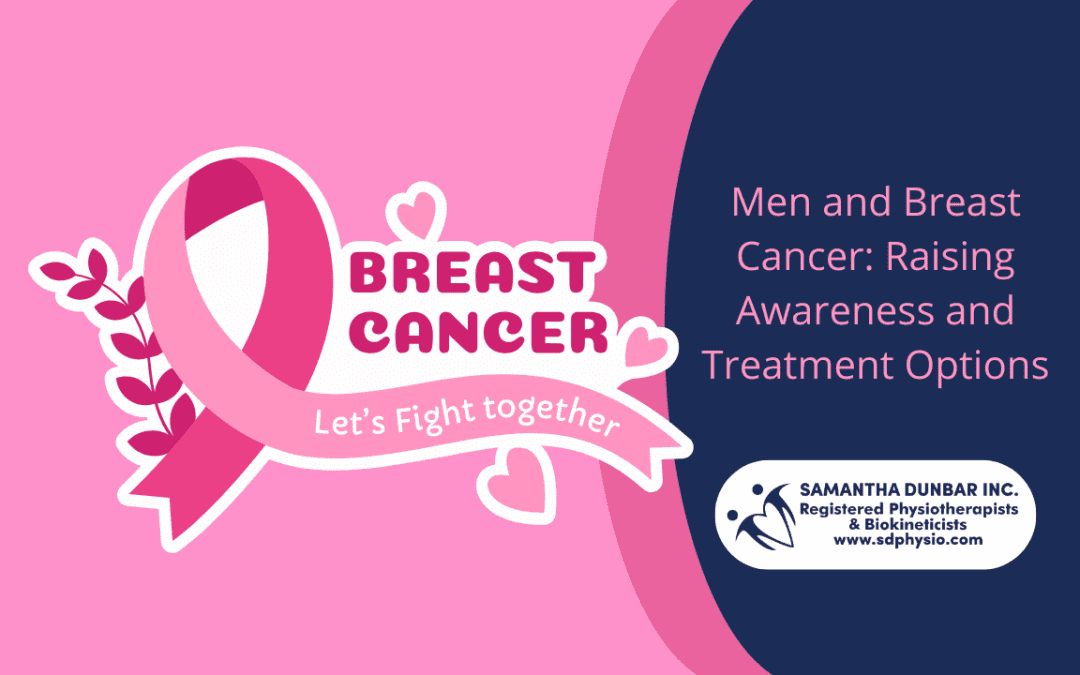When we think about breast cancer, the image that often comes to mind is that of a woman. However, it’s important to recognise that men can develop breast cancer too, although it’s much rarer, accounting for approximately 1% of all breast cancer cases. Despite this low percentage, awareness of risks, symptoms, and available treatments is crucial for men, as early detection and intervention can significantly impact outcomes.
Understanding Male Breast Cancer
Breast cancer in men occurs when malignant cells form in the breast tissue. Although men have less breast tissue than women, cancer in men often goes unnoticed until it’s more advanced, primarily due to the misconception that breast cancer is exclusively a female disease. This delay in diagnosis can lead to poorer outcomes, highlighting the importance of awareness and early detection.
Risk Factors for Male Breast Cancer
While breast cancer in men is rare, certain factors can increase the likelihood of developing it:
- Age: Most cases occur in men over 60.
- Family History: A history of breast cancer in close relatives can elevate the risk.
- Genetics: Mutations in the BRCA1 and BRCA2 genes increase the risk for both men and women.
- Hormonal Imbalance: Elevated estrogen levels, sometimes due to liver disease or certain medications, can increase risk.
- Radiation Exposure: Prior radiation therapy, particularly to the chest area, can contribute to risk.
- Lifestyle Factors: Obesity, smoking, and alcohol consumption have all been linked to a higher risk of breast cancer in men.
Symptoms to Watch For
Men should be vigilant about the following signs, as early detection is crucial for improving outcomes:
- A lump or thickening in the breast or underarm area
- Changes in the nipple, such as redness or discharge
- Skin changes, including dimpling or scaling around the breast
- Pain or tenderness in the breast area
Treatment Options for Men with Breast Cancer
Treatment for breast cancer in men typically mirrors that of women and may include surgery, radiation therapy, chemotherapy, and hormone therapy. The choice of treatment depends on the stage and characteristics of the cancer.
Often overlooked is the role of rehabilitative care post-treatment. Many breast cancer survivors deal with long-term side effects, such as decreased range of motion, muscle weakness, and lymphedema (swelling due to lymph fluid build-up). This is where Biokinetics and Physiotherapy play a vital role in supporting recovery.
How We Can Help
At our practice, equipped with a hyperbaric chamber, we offer unique services that can aid men who have undergone breast cancer treatment:
- Restoring Mobility and Strength: Cancer treatment often weakens muscles and can lead to stiffness in the upper body. A structured Biokinetic programme tailored to restore strength and mobility can greatly improve quality of life. Through guided exercises, we help patients regain function and reduce pain.
- Hyperbaric Oxygen Therapy (HBOT): Our hyperbaric chamber enhances healing and recovery. HBOT involves breathing pure oxygen in a pressurised environment, increasing oxygen levels in the blood, which enhances the body’s natural healing processes, reduces inflammation, and accelerates recovery post-surgery. It is particularly beneficial in promoting tissue healing and minimising complications such as wound infections or lymphoedema.
- Lymphoedema Management: We provide therapies designed to manage and reduce lymphoedema, including specialised massage techniques, compression therapy, and exercises aimed at improving lymphatic flow and reducing swelling.
- Post-Cancer Rehabilitation: Our holistic approach combines physical therapy with psychological support, addressing fatigue and emotional well-being. We help patients feel stronger and more confident as they transition back to daily life.
The Importance of Awareness and Early Detection
Raising awareness that men can develop breast cancer is essential for reducing late diagnoses. By understanding the risk factors, recognising symptoms, and seeking timely medical care, men can significantly improve their chances of successful treatment and recovery.













